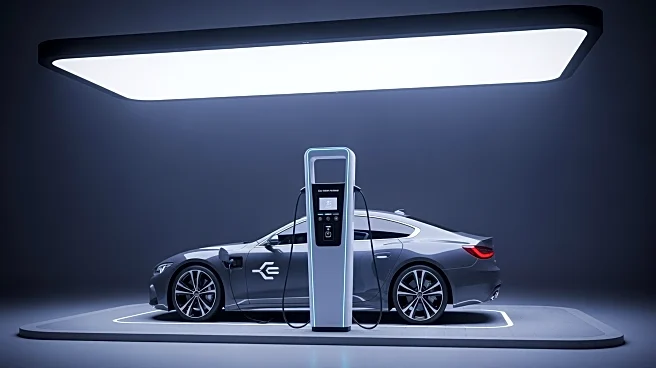What's Happening?
Honda Motor Co. has announced a significant 37% drop in its profit for the first fiscal half ending in September, attributed largely to the tariffs imposed by President Trump. The Tokyo-based automaker reported a profit of 311.8 billion yen ($2 billion),
down from 494.6 billion yen the previous year. Despite achieving record motorcycle sales, particularly in Asia, the tariffs have negatively impacted Honda's operating profit by 164 billion yen ($1.1 billion). Additionally, unfavorable currency exchange rates further eroded profits by 116 billion yen ($756 million). The company has also been affected by a global chip shortage, exacerbated by geopolitical tensions involving the Dutch government and China, which disrupted supply chains. As a result, Honda has adjusted production at its North American plants and halted operations at its Celaya, Mexico plant.
Why It's Important?
The decline in Honda's profits underscores the broader impact of U.S. tariffs on international trade and the automotive industry. Japanese automakers, despite having significant production facilities in the U.S., are facing financial strain due to increased costs and supply chain disruptions. This situation highlights the interconnectedness of global markets and the potential for geopolitical actions to affect corporate profitability. The tariffs not only affect automakers but also have wider implications for the Japanese economy, which relies heavily on exports. The ongoing chip shortage further complicates recovery efforts, affecting production schedules and potentially leading to delays in vehicle availability.
What's Next?
Honda has revised its profit forecast for the fiscal year ending March 2026, projecting a 64% decline from the previous year. The company is likely to continue navigating the challenges posed by tariffs and supply chain disruptions. Stakeholders, including investors and industry analysts, will be closely monitoring Honda's strategies to mitigate these impacts, such as potential shifts in production locations or adjustments in supply chain management. The resolution of the chip shortage and any changes in U.S. trade policy could significantly influence Honda's financial outlook and operational strategies moving forward.
















